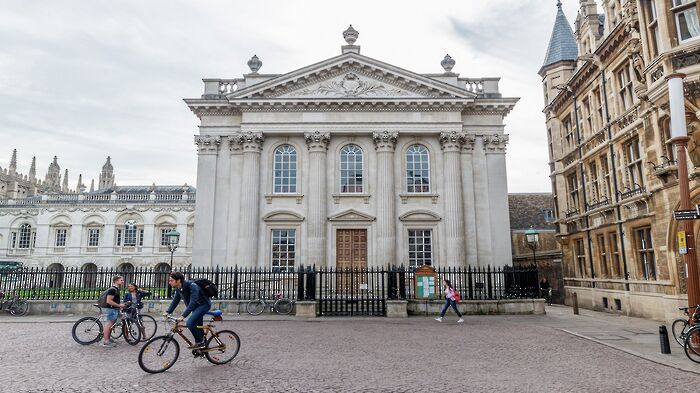Privileged students must face up to the reality of the access problem
Why we must all be self-reflective if Cambridge is to become more accessible

Was anyone truly surprised that over a third of students arriving to Oxford and Cambridge in the last ten years came from only 100 schools, as the recent Varsity investigation showed? For years, the sight of dainty court shoes and stomping rugger boots prancing from quadrangle to quadrangle has continued. Despite vast access programmes and agreement upon the necessity of eventual change, a certain group of private schools, predominantly single-sex and corseted by the ramparts of the M25, still has a grip on the heart of Oxbridge.
What do they know of privilege who only privilege know?
They are themselves often the greatest apologists for this. Their voices, strident and clear through years of received pronunciation, do in fairness often speak out against the advantages conferred upon them. Atonement and sorrow can always be found about the precedence of the private school collective. But when directed at a member of this club individually, this zealotry rapidly attenuates. Faces etiolate, and mouths hang agape, astonished at the idea that they personally had a greater chance of getting to Oxbridge than anyone else. The value of the individual’s self-worth is so great that this cannot be understood. They had always seen themselves not as among their comrades, but instead as the golden needle in the haystack, the gin in the Campari, the exception to the rule.
Of course, what do they know of privilege who only privilege know? But while people are entitled to their illusions, they are not entitled to a limitless enjoyment of them. The benefits of wealth and private schooling are relatively well-known now, but can never be overstated enough: the completely mechanised and assembled programme of preparation for each step of the application process, the time in classes to draw confidence out of even the most withdrawn, and the quality of teaching which ensures that the corollary of any grade below an A* is tears.
Mouths hang agape, astonished at the idea that they personally had a greater chance of getting to Oxbridge than anyone else
Wealth at home is vital here too, keeping books on the shelves, maintaining a comparatively stable family life and ensuring that the question is always where on holiday this year, not whether. A charged and intellectual dinner table discussion as Radio 4 chimes in the background is often exactly what is needed for the enthusiasm and fortitude to talk at interviews. Myopia and insularity from the rest of the country excuse these as norms, not blissful irregularities.
This is not to argue for any specific or particular change to education and admissions systems – I would not deign to know what, if anything, would alleviate this problem. The debate is still ongoing over what can produce a pure meritocracy, as most of us would like. It may be that a grammar school environment would draw children from disadvantaged backgrounds into the Oxbridge nexus more easily, or perhaps the equity of teaching in the currently dominant comprehensive model is more effective. Oxford and Cambridge have themselves had discussions on this problem, most recently in 2016 when Cambridge rejected a proposal to give lower entrance grade offers to candidates based on background and schooling. Some Oxford colleges have ploughed millions into foundation courses specifically for disadvantaged pupils.
But the first step to answering a problem of injustice such as this is an honest assessment of where we are now, wherever the argument goes from there. It takes an admission by anyone whose background has in part carried them here of the advantages they have received before any sense can be wrought out of this conversation. All of us should be checking ourselves at every point, and asking why and how we are where we are.
 Music / The pipes are calling: the life of a Cambridge Organ Scholar25 April 2025
Music / The pipes are calling: the life of a Cambridge Organ Scholar25 April 2025 News / Candidates clash over Chancellorship25 April 2025
News / Candidates clash over Chancellorship25 April 2025 Interviews / Dr Ally Louks on going viral for all the wrong reasons25 April 2025
Interviews / Dr Ally Louks on going viral for all the wrong reasons25 April 2025 Comment / Cambridge builds up the housing crisis25 April 2025
Comment / Cambridge builds up the housing crisis25 April 2025 News / Cambridge professor paid over $1 million for FBI intel since 199125 April 2025
News / Cambridge professor paid over $1 million for FBI intel since 199125 April 2025






